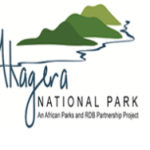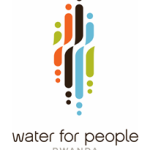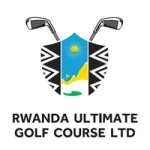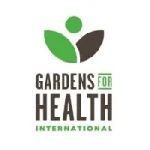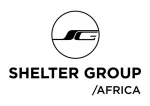Plan International is a rights-based development and humanitarian organisation working for better lives for all children. We are independent of government and have no political or religious affiliation. Our purpose is to strive for a just world that advances children’s rights and equality for girls. We have been building powerful partnerships for children for more than 80 years and are now active in more than 70 countries
Website: https://www.plan-international.org
CALL FOR PROPOSALS FY 25/01/001
Terms of Reference (ToR)
External Consultant for Child Rights, Gender, Age, and Inclusion Situation Analysis
Plan International Rwanda
Background
Plan International Rwanda is a child & youth-focused organization committed to advancing children’s rights and equality for girls. As part of the development of its new Country Strategy (2025–2030), Plan International Rwanda seeks to conduct a comprehensive situation analysis on child rights, young people, age and gender inclusion. This analysis will provide critical insights into the current social, economic, legal, and political environment affecting children and youth, especially girls, and guide the organization’s strategic priorities for the next five years.
Focus of the Study
The consultant will focus on the following key aspects:
Social, Political, Economic, and Legal Environment:
- Analyze how laws, policies, budget allocations, and social practices affect children & young people’s rights and gender equality, highlighting relevant national and local frameworks.
- Identify gaps in the implementation and enforcement of policies related to children and young people’s rights and gender equality.
- Explore how political and economic priorities impact resource allocation for underserved groups, including children, young people, people with disability, indigenous, with different gender identities particularly girls, young women and women.
Gender, Age and Inclusion Analysis and Root Causes:
- Identify gaps and rights violation/inequalities within thematic focus/6 Areas of global distinctiveness for children, adolescents, youth (CAY)and adults.
- Describe how and why the identified inequalities affect female and male differently
- Describe how the identified inequalities are manifested differently between age groups (children, adolescent, young people in various age groups considering key six AOGDs/thematic focus.
- Describe how and why at least one or other exclusion factors affect different groups or underserved groups (CAY with disabilities, teen mothers, GBV survivors, indigenous, refugees, illiterate, rural vs urban…).
- Examine significant gaps in children’s and young people’s rights and gender equality at national and local levels, analyzing root causes and drivers of inequalities, including socio-cultural norms, power imbalances, and exclusionary practices.
Natural and Man-Made Threats:
- Assess the impacts of climate change, natural disasters, and conflicts on children, young people’s rights and gender equality, identifying risks and vulnerabilities that exacerbate inequalities.
Role of CSOs particularly women and youth led Organizations, network:
- Map organizations (both national and international), including youth led-organizations, women led organizations/networks, indigenous organizations, Disabled People’s Organizations (DPOs) both at national and local level to analyse how they are engaged in governance processes, how they promote gender equality and analysetheir strengths and weaknesses.
This study will also integrate Plan International’s Areas of Global Distinctiveness (AOGDs):
- Girls, Boys and Youth as Drivers of Change (LEAD)
- Inclusive Quality Education
- Early Childhood Development (ECD)
- Protection from Violence
- Skills & Opportunities for Youth Employment and Entrepreneurship (SOYEE)
- Sexual and Reproductive Health and Rights (SRHR)
The situation analysis will highly utilize the gender, age and inclusion analytical framework for exploring how the six elements of gender transformative work (gender norms; girls/young agency; engaging boys and men; improving daily conditions and position; considering diversity and enabling environment) are manifested in the mentioned 6 AOGDs referring to the voices of CAY in all their diversity. Also, how they can inform the organization’s strategy to achieve gender equality and inclusion and empower children, adolescent and youth in Rwanda.
Objectives of the Consultancy
The primary objective is to provide an evidence-based analysis of child rights, young people, and gender equality and inclusion in Rwanda to inform Plan International Rwanda’s strategy development. Specific objectives include:
- Assess the Policy and Legal Landscape: Identify how national and local policies, laws, and budgets support or hinder children’s rights and gender equality.
- Analyze Major Gaps and Root Causes: Explore significant rights gaps, inequalities, and their underlying causes, including socio-cultural, economic, and political drivers.
- Examine Vulnerabilities and Risks: Assess how natural and man-made disasters, conflicts, and climate change impact children’s rights and gender equality.
- Understand Stakeholder Dynamics: Map key actors and organizations influencing child rights and gender equality, their priorities, and how Plan International Rwanda can collaborate or influence these actors.
- Provide Actionable Recommendations: Develop strategic recommendations to address barriers, leverage opportunities, and align with Plan International’s AOGDs, Global Policy and Rwanda’s NST2.
Scope of Work
The consultant will:
Review of National Policies and Frameworks
- Rwanda constitution and key articles in line with gender equality, child rights, economic, health and protection.
- Analyze Rwanda’s NST2, sectoral policies (e.g., education, health, gender, economic empowerment, agriculture, climate change and child protection), continental and global frameworks (e.g., Maputo Protocol, CRC, CEDAW, UNSCRC 1325, BEIJING platform of actions, SDGs).
- Identify policy gaps and opportunities for advancing child rights and gender equality link to the AOGDs.
Primary Data Collection in Six Districts
- Conduct qualitative and quantitative data collection in the following districts (Bugesera, Gatsibo, Nyaruguru) and all the refugee camps and their respective host communities.
- Engage stakeholders, including children and youth (especially girls), caregivers, community leaders, government representatives, and civil society and people living with disability.
Analyze Key AOGDs
- Girls’ Leadership: Explore barriers and opportunities for girls in leadership roles at the household, community, civic space, decentralized and national levels.
- Education: Assess disparities in access to and quality of education, with a focus on girls and marginalized groups.
- SRHR: Evaluate access to information, services, and decision-making for adolescents and young women.
- Violence against Children: Examine the prevalence of violence, including GBV, child abuse, and harmful practices.
- Economic Empowerment: Assess opportunities and challenges for young people, particularly girls, to access livelihoods and financial resources both in agriculture and non-agriculture sectors.
- Girls in Crisis: Investigate the impact of crises, including displacement and emergencies, on girls and young women.
- Climate Change: Analyze the gendered impacts of climate change and identify strategies for resilience and adaptation.
- Disaggregate Data
- Ensure all data collected is disaggregated by age, gender, disability, and geographic location to identify disparities and inform targeted interventions.
- Develop Recommendations
- Propose evidence-based recommendations that alignManagement response plans with NST2 priorities and Plan International’s global and regional strategies.
Methodology
A mixed approach will be used including primary and secondary data collection and analysis. For the primary data, the consultant will utilized Plan International Gender Age and Inclusion (GAI) analytical framework for embedding /adopting a gender-transformative and rights-based approach, Plan International Global Theory of Change, supported by AOGDs situation analysis tool and the following methods:
Desk Review
- Review national law, strategies, policies, and existing periodical research related to child rights, girls, youth, gender equality, health, education, household conditions, governance and community participation.
Participatory Primary Data Collection
- Conduct fieldwork in the proposed locations/districts where Plan International operates.
Use participatory approaches, including:
- Focus Group Discussions (FGDs) with children, youth, parents and caregivers, and community members. For FGDs the consultant will highly embed gender ethical consideration (make sure to split the group as much possible considering sex, age, inclusion) for better identification of right violation/inequalities and their root causes into the diverse group of children, adolescent and young people (CAY).
- Key Informant Interviews (KIIs) with government officials, community leaders, teachers, CBCPMs members,healthcare providers, and civil society representatives.
- Surveys or questionnaires gather quantitative data. (Surveys, FGD guide, KII guide).
Stakeholder Engagement
- Organize validation workshops with key stakeholders to refine findings and co-develop recommendations.
Intersectional Analysis
- Examine how gender intersects with other vulnerabilities, such as age, disability, teen mother, GBV survivors, illiteracy, cultural norms or believes and socio-economic status.
Sample
- The consultant, in collaboration with relevant documentation and the Development team, should design and propose a sampling strategy or method. This should demonstrate a thorough understanding of the sampling frame and ensure efficient representation within the sample. The proposal must include details on the sample size, key respondents disaggregated according to Plan International guidelines, geographic locations, and the sampling approach.
Participant selection and recruitment
- Key stakeholders involved in the situation analysis include;
- Children, adolescent and youth (CAY) with diverse profile such as: disabilities, teen mother, GBV survivors, indigenous, refugees, child head of household; Orphans, illiterate and CAY with other gender identities both in and out of school.
- Parents/caregiver of CAY in sponsorship program; children under ECD age groups; of CAY with disabilities, teen mothers; indigenous. And parents/caregiver in domestic violence or IPV.
- Teacher, mentors and community volunteers in sponsorship and community-based structures on child rights and health (IZU and CHWs)
- Local CSO particularly Youth led organisations, young women and women led organizations and networks representatives working on 6 Plan AOGDs and Plan cross cutting areas digital, youth centered, climate change, resilience and gender transformative approach key six elements: Gender norms, girls and young women leadership/agency; boys and men engage; considering inclusion.
- Media outlets both at national and community level and both from private and public sectors. Also, social media influencers and activists/advocates in line with Plan 6 AOGDs and cross-cutting areas.
- Religious leaders (Christian, Muslim and others)
- Decision and policy makers both at decentralized level (district, sectors, cell, villages) and at Central level particularly key government of Rwanda platform, ministries in line with Plan 6 AOGDs such as: the national gender machinery, MIGEPROF,MOYA, MoH, MINEDUC, MINEMA, MINALOC, MoE, MINAGRI, MINIJUST, PSF and RGB.
- Key implementing agencies/institutions and structure on gender equality, youth engagement and child right such as: NCDA, NWC, NCPD, NYC, NYV, RYAF, RBC, National Institute of Statistics of Rwanda (NISR), RAB, RCA, RIB, Isange One Stop Centers.
If deemed necessary by the Development team, additional participants may be identified. However, further screening should be conducted to ensure that no relevant stakeholders or participants are omitted.
Deliverables
Inception Report(5 days):
- Detailed methodology, work plan, and data collection tools.
Fieldwork Completion Report (25 days):
- Summary of primary data collection activities, preliminary findings, and emerging themes.
Draft Report (5 days):
- Comprehensive analysis of barriers, enablers, and recommendations by per AOGD/thematic area aligned with Plan’s AOGDs/thematic areas and Rwanda’s NST2.
Validation Workshop Report (3 days):
- Summary of stakeholder feedback and final refinements regarding findings and recommendations.
Final Report (7 days):
- Incorporating feedback from the validation workshop, with actionable recommendations for Plan International Rwanda’s strategy.
Intended users of the report
- Plan International Rwanda, NOs, partners, Civil Society, Community members and other key stakeholders
Required Expertise
- Advanced degree in gender studies, child rights, social sciences, M&E or related fields.
- Proven experience (minimum 10 years) conducting similar gender equality and inclusion and child rights analyses in Rwanda or similar contexts.
- Strong knowledge of Rwanda’s NST2 and global frameworks such as the CRC, CEDAW, Beijing, Maputo protocol, UNSCR 1325 and SDGs.
- Expertise in participatory methods and working with children and youth.
- Excellent analytical, writing, and facilitation skills.
- Fluency in English, ideally with some level of Kinyarwanda.
Timeline
The consultancy will be completed in 45 calendar days, with the following milestones:
- Inception Report: 5 Days.
- Fieldwork Completion: 25Days.
- Draft Report: 5 Days.
- Validation Workshop: 3 Days.
- Final Report Submission: 7 Days.
Reporting and Management
The consultant will report to the Country Director of Plan International Rwanda and work closely with the Head of Programmes and Strategy Development Team. Weekly updates will ensure alignment with the timeline and deliverables.
Application Process
Interested consultants are invited to submit:
- A technical proposal, including an understanding of the assignment, methodology, and work plan.
- Ethics and child safeguarding approaches, including any identified risks and mitigation measures.
- A financial proposal with a detailed budget.
- CVs of the consultant(s) and any team members, highlighting relevant experience. Kindly note for gender ethical consideration, a gender balance team comprising both females and males will be preferred.
- Samples of similar work conducted previously.
Applications should be sent to Plan International Rwanda Office by 20th January 2025 referencing ” Child Rights, Gender, Age and Inclusion Situation Analysis ” in the subject line and including support documents as outlined.
Other accompanied administration documents:
- Provision of 3 good completion certificates of similar works.
- RDB certificate,
- Tax & RSSB clearances,
- VAT certificate, etc…)
HOW TO APPLY
Applications should be sent to Plan International Rwanda Office not later than 20th January 2025 referencing ” Child Rights, Gender, Age and Inclusion Situation Analysis ” in the subject line and including support documents as outlined.
Done on 7th January 2025
Submissions should be addressed to
The Chairperson -Tender Panel
Plan International Inc. Rwanda
Golden Plaza Building, Floor # 4, KG 456 St
P.O. Box 6211, Kigali, Rwanda.

